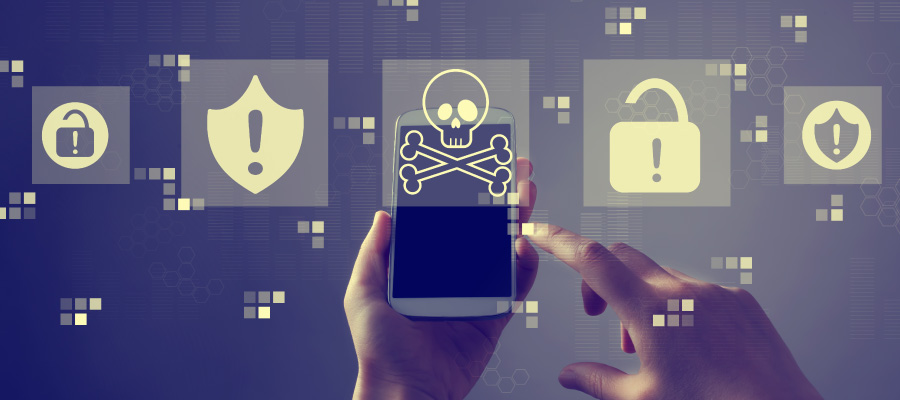Your phone contains much that is valuable to cybercriminals. It can tell them about your relationships through your contacts and social media. It may contain your financial information in banking and payment apps. It may even provide a literal view into your life through its camera or allow them to eavesdrop via its microphone. Fortunately, there are ways you can protect your phone from such threats.
Use antivirus
Viruses, key loggers and other malware are less common on smartphones than on desktop PCs but exist all the same. Malware exists on both Android and iOS so protect yourself from it by using antivirus software on your phone. See this list of iOS antivirus software or this list of Android antivirus software.
Install updates as soon as feasible
Updating your phone helps keep your phone safe by fixing bugs that might otherwise be exploited to give cybercriminals access to your phone.
Check for iOS updates
- Open the Settings menu
- Tap General and choose Software Update
You can even have updates installed automatically by tapping Automatic Updates in the Software Update settings.
Check for Android updates
- Open the Settings menu and tap the System option
- Choose Advanced and select System update
These steps can vary depending on the Android device you’re using. If in doubt, open the Settings menu, and search for System Updates.
Use strong, unique passwords
Managing passwords isn’t easy. It’s a challenge to make strong, unique passwords for every account, and harder still to remember them all. It’s no wonder we are tempted to reuse passwords, or use weaker ones that are easy to remember. It’s worth the effort, though, because criminals have dozens of tools at their disposal for cracking passwords. Simple passwords can be cracked in matter of seconds. Learn how to create strong passwords in this guide.
Use WiscVPN
WiscVPN (Virtual Private Network) software allows you to securely access the internet by encrypting data between your computer and the internet, then routing it over the campus network. That routing lets you access campus resources as if you were on the campus network.
Keep an eye on your apps
Delete unused apps
If you have an unused app on your phone, it may still access your data even though you don’t use it. Limit the number of companies who have access to your data by deleting unused apps.
Prune app permissions
Do you know which apps on your phone can access your location? Your contacts? The answer might surprise you. The good news is that you can actively restrict which apps have access to these and other permissions.
iOS permissions
- Launch the Settings app and select Privacy to see all the permissions available on your phone
- Select any permission to see the apps that have that permission
- Select the app to disable the unneeded permission; you can enable it again later
Android permissions
- Open your Android phone’s Settings menu and search for Permissions Manager
- Select the permission that you want to change
- From the list of apps with this permission, tap the app
- Tap Deny to disable an app’s access to the permission; you can always enable it again later
